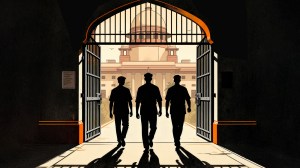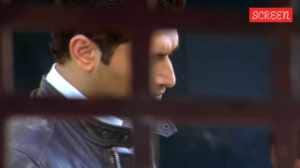For heroes of Mumbai, terror was a call to action
On any ordinary day, Vishnu Datta Ram Zende used the public-address system at Mumbai’s largest railway station to direct busy hordes of travellers to their trains.

On any ordinary day, Vishnu Datta Ram Zende used the public-address system at Mumbai’s largest railway station to direct busy hordes of travellers to their trains. But last Wednesday just before 10 p.m., when he heard a loud explosion and saw people running across the platform, he gripped his microphone and calmly directed a panicked crowd towards the safest exit. The station, it turned out, was suddenly under attack, the beginning of a three-day siege by a handful of young, heavily armed terrorists.
“Walk to the back and leave the station through Gate No. 1,” he chanted alternately in Hindi and Marathi, barely stopping to take a breath until the platform was cleared. No sooner, gunmen located his announcement booth and fired, puncturing one of the windows. Zende was not hurt.
Overnight, Zende became one of Mumbai’s new heroes, their humanity all the more striking in the face of the inhumanity of the gunmen. As the city faced one of the most horrific terrorist attacks in the nation’s history, many ordinary citizens like Zende, 37, displayed extraordinary grace.
Not far from the train station, as the same network of gunmen stormed the Taj Mahal Palace & Tower Hotel, a sous chef named Nitin Minocha and his co-workers shepherded more than 200 restaurant diners into a warren of private club rooms called ‘The Chambers’.
For the rest of the night they prepared snacks, served soda, fetched cigarettes and then, when told it was safe, tried to escort the diners out through the back. They wanted to make sure their guests were as comfortable as possible.
“The only thing was to protect the guests,” said the executive chef, Hemant Oberoi. “I think my team did a wonderful job in doing that. We lost some lives in doing that.” During the attacks, six employees from the kitchen staff were slain.
At the Taj, Minocha, 34, cracked open the door of the Golden Dragon restaurant where he was on duty, saw the commotion and promptly closed it.
Minocha caught two bullets in the left arm. It felt numb. He could see that the bone had been shattered. He panicked. “I’m a chef,” he told himself. “I cook with both hands.”
Next to the Nariman House, the headquarters of a Jewish religious organisation, where gunmen took hostages, neighbours helped neighbors evacuate to safety.
At the Oberoi, staff members ushered restaurant diners into the kitchen and out the door; at that hotel, 10 employees died.
Zende saw the gunmen walk in front of his window. Then he crouched on the ground and heard them shoot. One bullet came through a window. Above his microphone, a statue of Lord Ganesh, the Remover of Obstacles, sat in a blue box with twinkling red lights around him. Zende called his wife. “I am in the office. I’m safe. Don’t worry.”
Zende joined the railways at the age of 19, when his father, a railway guard, died. With a 10th-grade education, Zende began at the bottom of the ladder, working himself up to the announcement booth. Now, he commutes an hour and a half each way from a working-class corner on the city’s northern edges, naturally on the railways. He makes a little more than Rs 15,000 a month.
On Monday, a woman strode up the steep, narrow steps to his announcement booth and burst out her praise: “Zende, you have done such good work. We need more people like you.”
She declined to give her name.She railed against politicians. Then she signed off.
Jai Hind, she said. “Long live India.”
Zende quietly replied, Jai Hind.





- 01
- 02
- 03
- 04
- 05


























